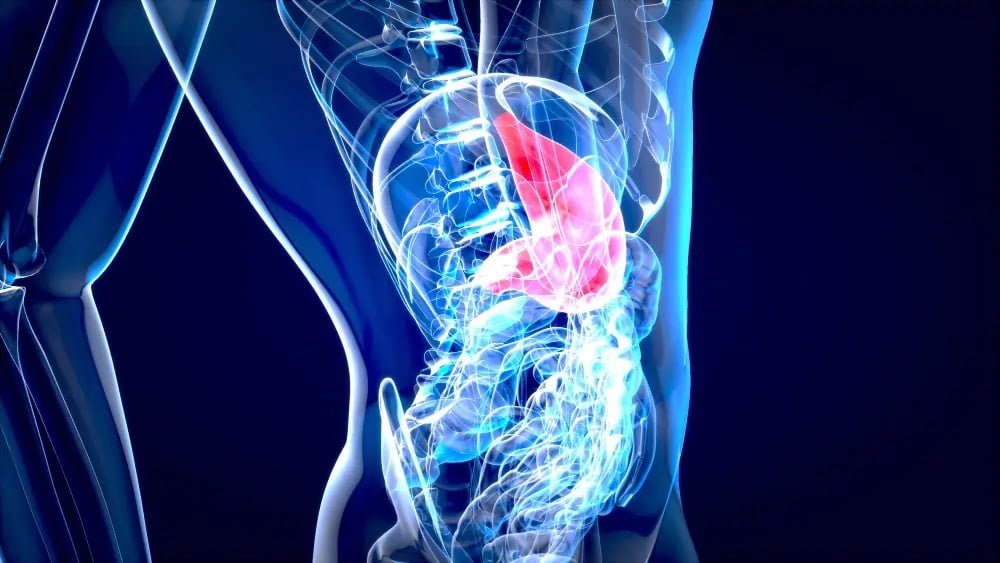Introduction
Fever and diarrhea are common symptoms that can affect anyone at any age. They can be caused by various factors, such as viral, bacterial, or parasitic infections, inflammatory bowel diseases, food poisoning, or medication side effects. Sometimes, they may occur together as part of the same condition, or separately as a result of different causes. But how can you tell if your fever and diarrhea are signs of a serious infection or a mild illness? Here are some tips to help you identify the possible causes and when to seek medical attention.
Viral Infections
One of the most common causes of fever and diarrhea is viral gastroenteritis, also known as stomach flu. This is an inflammation of the stomach and intestines caused by viruses such as norovirus or rotavirus. You can get infected by coming into contact with an infected person or by consuming contaminated food or water. The symptoms usually start within 1-3 days after exposure and last for a few days. They include:
– Watery, non-bloody diarrhea
– Nausea, vomiting, or both
– Stomach cramps and pain
– Low-grade fever
– Headache, muscle aches, or fatigue
Most cases of viral gastroenteritis are mild and do not require treatment, except for rest and plenty of fluids to prevent dehydration. However, some people may be at risk of complications, such as infants, older adults, and people with weakened immune systems. If you or your child have any of the following signs, you should see a doctor as soon as possible:
– Severe dehydration, such as excessive thirst, dry mouth, little or no urine, dizziness, or weakness
– High fever (above 104 F or 40 C)
– Bloody or black stools
– Severe abdominal pain
– Persistent or worsening symptoms after 2 days
Bacterial Infections
Another possible cause of fever and diarrhea is a bacterial infection, such as salmonella, E. coli, or campylobacter. These bacteria can enter your body through contaminated food, such as undercooked meat, eggs, or dairy products, or through contact with infected animals or people. The symptoms usually begin within 6-72 hours after exposure and last for 4-7 days. They include:
– Loose, watery, or bloody diarrhea
– Fever and chills
– Nausea, vomiting, or both
– Abdominal cramps and pain
– Loss of appetite, weight loss, or weakness
Some bacterial infections can be treated with antibiotics, but others may resolve on their own without medication. However, some people may develop serious complications, such as dehydration, kidney failure, or septic shock. If you have any of the following signs, you should seek medical help immediately:
– Severe dehydration, such as excessive thirst, dry mouth, little or no urine, dizziness, or weakness
– High fever (above 104 F or 40 C)
– Bloody or black stools
– Severe abdominal pain
– Signs of shock, such as rapid heartbeat, low blood pressure, or confusion
Parasitic Infections
Parasites are organisms that live in or on another organism and feed on it. Some parasites, such as giardia, cryptosporidium, or entamoeba, can cause intestinal infections that lead to fever and diarrhea. You can get infected by drinking or swimming in contaminated water, eating raw or undercooked food, or traveling to areas where these parasites are common. The symptoms may vary depending on the type of parasite, but they usually include:
– Watery, foul-smelling, or greasy diarrhea
– Fever and chills
– Nausea, vomiting, or both
– Abdominal cramps and pain
– Bloating, gas, or flatulence
– Weight loss or malnutrition
Parasitic infections can be treated with anti-parasitic drugs, but some may require more than one course of treatment. Some people may not have any symptoms, but they can still spread the infection to others. If you have any of the following signs, you should consult your doctor as soon as possible:
– Severe dehydration, such as excessive thirst, dry mouth, little or no urine, dizziness, or weakness
– High fever (above 104 F or 40 C)
– Bloody or black stools
– Severe abdominal pain
– Signs of liver or brain damage, such as jaundice, dark urine, or seizures
Inflammatory Bowel Diseases
Inflammatory bowel diseases (IBDs) are chronic conditions that cause inflammation and ulcers in the digestive tract. The two main types of IBD are Crohn’s disease and ulcerative colitis. They can affect any part of the digestive tract, but Crohn’s disease usually affects the end of the small intestine and the beginning of the large intestine, while ulcerative colitis usually affects the large intestine and the rectum. The symptoms may vary depending on the type and severity of the disease, but they often include:
– Diarrhea, which may be watery, bloody, or mucus-filled
– Fever and night sweats
– Abdominal pain and cramps
– Weight loss and loss of appetite
– Fatigue and anemia
– Rectal bleeding or urgency
IBDs are not caused by infections, but by an abnormal immune response that attacks the lining of the digestive tract. The exact cause of IBDs is unknown, but they may be influenced by genetic, environmental, or lifestyle factors. There is no cure for IBDs, but they can be managed with medication, surgery, or dietary changes. If you have any of the following signs, you should see a doctor as soon as possible:
– Severe dehydration, such as excessive thirst, dry mouth, little or no urine, dizziness, or weakness
– High fever (above 104 F or 40 C)
– Bloody or black stools
– Severe abdominal pain
– Signs of bowel obstruction, perforation, or infection, such as vomiting, bloating, or fever
In Conclusion Fever and Diarrhea
Fever and diarrhea are common symptoms that can have many different causes. Some of them are mild and self-limiting, while others are serious and require medical attention. It is important to stay hydrated and monitor your symptoms closely. If you have any signs of dehydration, high fever, blood in your stools, severe pain, or other complications, you should seek medical help immediately. By doing so, you can prevent further damage to your health and recover faster.
FAQs
– Q: What are the common causes of fever and diarrhea?
– A: Fever and diarrhea can be caused by viral, bacterial, or parasitic infections, such as stomach flu, food poisoning, or giardiasis. They can also be caused by inflammatory bowel diseases, such as Crohn’s disease or ulcerative colitis, which are chronic conditions that affect the digestive tract.
– Q: How can I prevent fever and diarrhea?
– A: You can prevent fever and diarrhea by practicing good hygiene, such as washing your hands frequently, especially before eating or after using the bathroom. You can also avoid eating or drinking anything that may be contaminated, such as raw or undercooked meat, eggs, dairy products, or water from unsafe sources. You can also get vaccinated against some viral infections, such as rotavirus or norovirus, that can cause fever and diarrhea.
– Q: How can I treat fever and diarrhea at home?
– A: You can treat fever and diarrhea at home by drinking plenty of fluids, such as water, juice, or oral rehydration solutions, to prevent dehydration. You can also eat bland foods, such as bananas, rice, toast, or applesauce, to ease your stomach. You can also take over-the-counter medications, such as acetaminophen or ibuprofen, to reduce fever and pain. However, you should avoid anti-diarrheal drugs, such as loperamide or bismuth subsalicylate, unless your doctor advises you to do so, as they may worsen your condition or cause side effects.
– Q: When should I see a doctor for fever and diarrhea?
– A: You should see a doctor for fever and diarrhea if you have any of the following signs or symptoms:
– Severe dehydration, such as excessive thirst, dry mouth, little or no urine, dizziness, or weakness
– High fever (above 104 F or 40 C)
– Bloody or black stools
– Severe abdominal pain
– Signs of a serious infection or complication, such as vomiting, bloating, jaundice, dark urine, or seizures
– Q: How will my doctor diagnose the cause of my fever and diarrhea?
– A: Your doctor will diagnose the cause of your fever and diarrhea by asking you about your medical history, symptoms, and exposure to possible sources of infection. Your doctor may also perform a physical examination and order some tests, such as blood tests, stool tests, urine tests, or imaging tests, to check for signs of inflammation, infection, or damage to your organs. Your doctor may also refer you to a specialist, such as a gastroenterologist if you have signs of an inflammatory bowel disease or a chronic condition.







 Afrikaans
Afrikaans Albanian
Albanian Amharic
Amharic Arabic
Arabic Armenian
Armenian Azerbaijani
Azerbaijani Basque
Basque Belarusian
Belarusian Bengali
Bengali Bosnian
Bosnian Bulgarian
Bulgarian Catalan
Catalan Cebuano
Cebuano Chichewa
Chichewa Chinese (Simplified)
Chinese (Simplified) Chinese (Traditional)
Chinese (Traditional) Corsican
Corsican Croatian
Croatian Czech
Czech Danish
Danish Dutch
Dutch English
English Esperanto
Esperanto Estonian
Estonian Filipino
Filipino Finnish
Finnish French
French Frisian
Frisian Galician
Galician Georgian
Georgian German
German Greek
Greek Gujarati
Gujarati Haitian Creole
Haitian Creole Hausa
Hausa Hawaiian
Hawaiian Hebrew
Hebrew Hindi
Hindi Hmong
Hmong Hungarian
Hungarian Icelandic
Icelandic Igbo
Igbo Indonesian
Indonesian Irish
Irish Italian
Italian Japanese
Japanese Javanese
Javanese Kannada
Kannada Kazakh
Kazakh Khmer
Khmer Korean
Korean Kurdish (Kurmanji)
Kurdish (Kurmanji) Kyrgyz
Kyrgyz Lao
Lao Latin
Latin Latvian
Latvian Lithuanian
Lithuanian Luxembourgish
Luxembourgish Macedonian
Macedonian Malagasy
Malagasy Malay
Malay Malayalam
Malayalam Maltese
Maltese Maori
Maori Marathi
Marathi Mongolian
Mongolian Myanmar (Burmese)
Myanmar (Burmese) Nepali
Nepali Norwegian
Norwegian Pashto
Pashto Persian
Persian Polish
Polish Portuguese
Portuguese Punjabi
Punjabi Romanian
Romanian Russian
Russian Samoan
Samoan Scottish Gaelic
Scottish Gaelic Serbian
Serbian Sesotho
Sesotho Shona
Shona Sindhi
Sindhi Sinhala
Sinhala Slovak
Slovak Slovenian
Slovenian Somali
Somali Spanish
Spanish Sundanese
Sundanese Swahili
Swahili Swedish
Swedish Tajik
Tajik Tamil
Tamil Telugu
Telugu Thai
Thai Turkish
Turkish Ukrainian
Ukrainian Urdu
Urdu Uzbek
Uzbek Vietnamese
Vietnamese Welsh
Welsh Xhosa
Xhosa Yiddish
Yiddish Yoruba
Yoruba Zulu
Zulu